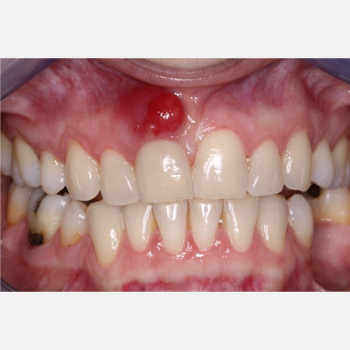Restorative Dentistry
Restorative dentistry involves the prevention, diagnosis and treatment of a wide variety of conditions, disorders and diseases affecting the teeth, gums and maxillofacial (associated with the jaw and face) region of the body. It incorporates teeth cleaning, teeth sealants, teeth denervation, teeth extraction as well as prosthodontic services, in case of missing or deficient teeth. In Dentistar clinic we believe in preventive dentistry, offering all the above services in order for you to enjoy exceptional dental health.
Endodontic Treatment
Underneath your tooth’s outer enamel and within the dentin is an area of soft tissue called the pulp, which carries the tooth’s nerves, veins, arteries and lymph vessels. Root canals are very small, thin divisions that branch off from the top pulp chamber down to the tip of the root. A tooth has at least one and sometimes even five or six root canals. When the pulp becomes infected due to a deep cavity or fracture that allows bacteria to seep in, or injury due to trauma, it can die. Damaged or dead pulp causes increased blood flow and cellular activity, and pressure cannot be relieved from inside the tooth. Pain in the tooth is commonly felt when biting down, chewing on it and applying hot or cold foods and drinks. A root canal is a procedure done to save the damaged or dead pulp in the root canal of the tooth by cleaning out the diseased pulp and reshaping the canal. The canal is filled with gutta percha, a rubberlike material, to prevent contamination of the tooth. The tooth is then sealed with a dental filling or a dental crown. This enables patients to keep the original tooth.
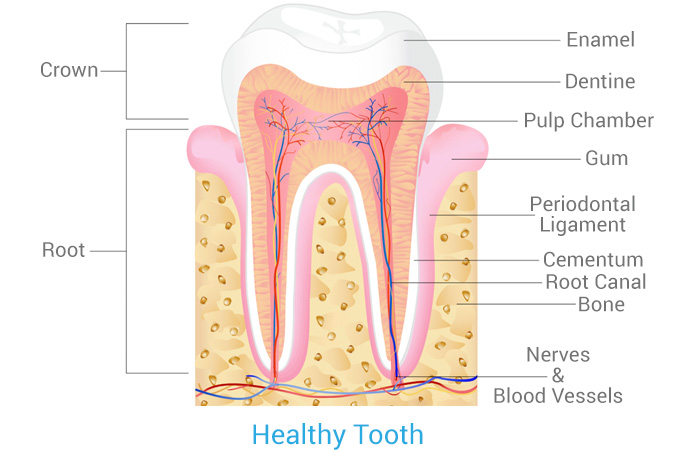
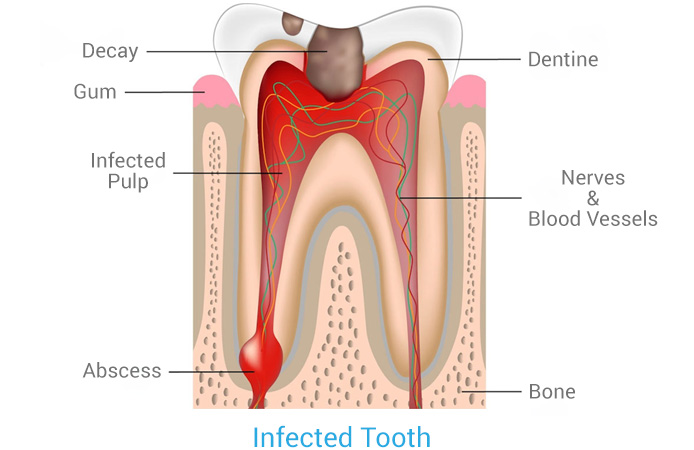
Pulpitis
Acute pulpitis is the intense inflammation of the tooth pulp. Acute pulpitis comes with severe pain, which lasts a few minutes (or can also be continuous) and is caused by a stimulus such as cold or warm. Puplitis is commonly characterized by continuous pain even after the cessation of the stimulus action. In advanced stages (acute purulent puplitis), the pain becomes unbearable. Sometimes, it may even occur automatically, without a cause or stimulus. The cause of pulpitis may be tooth decay, an injury to the tooth from an accidental fall or some work done on the tooth (filling, grinding to get a crown etc). In its early stages, acute pulpitis may not be damaging to the pulp, but if it’s not treated properly, purulent pulpitis – detrimental to the pulp of the tooth – may appear. In the very early stages, acute pulpitis is a condition theoretically reversible. In most cases, the treatment of choice involves the removal of the pulp (root canal therapy).
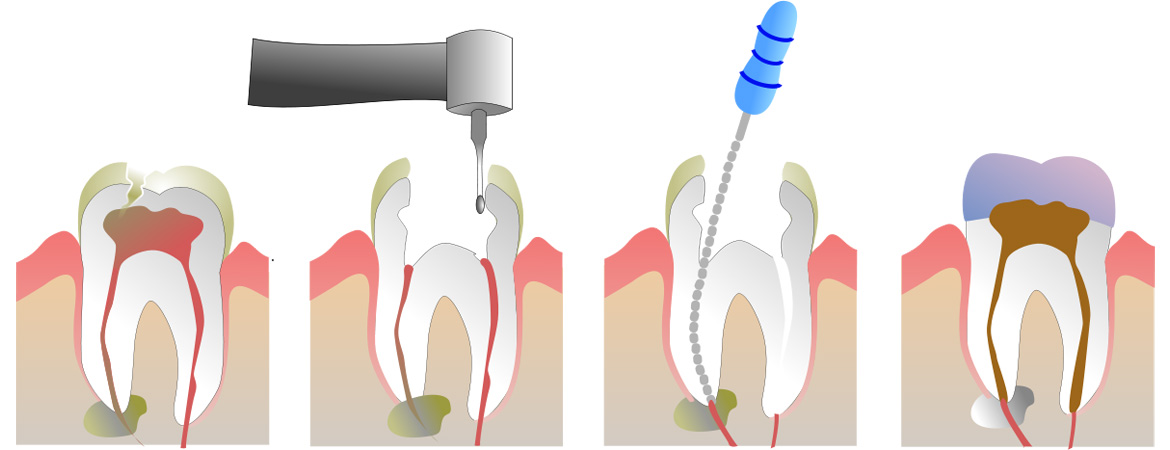
Apical Abscess
Apical abscess is a purulent inflammation of the tissue surrounding the root of the tooth, which is due to expansion of contamination found in canals. Apical abscess is mainly owed to microbes or microbial toxins which, after inflecting the root call, leave the apical foramen, thus infecting the surrounding tissues. The gathered pus is composed of dead cells and bacteria and is a product of the body’s “battle” against pathogens.
Symptoms:
In the early stages, there is a gradually worsening, constant pain at the affected tooth. Then, the pain gets really irritating as pus starts pushing the nerves in the area. After a few days, pus spreads to the surrounding tissues and local swelling starts being visible. At this stage, the pain gets milder even if it might be followed by fever and malaise. Sometimes, pus may induce a hole in the gums (fistula) and might exit to the oral cavity. In this case, pain and swelling gradually subside.
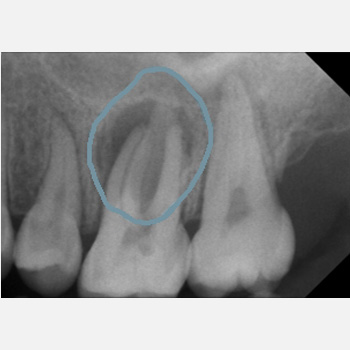
Apical Abscess
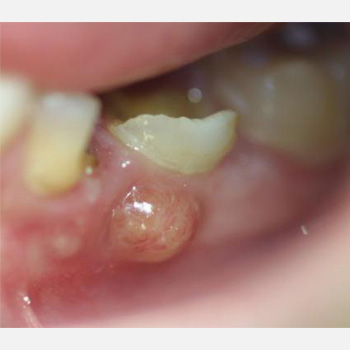
Fistula
